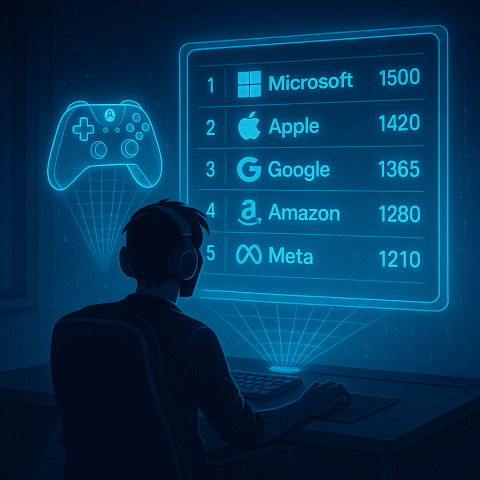Corporate Esports Leagues: The New Frontier of Enterprise Competition
What started as casual gaming sessions has transformed into sophisticated corporate competitions with real business implications. Companies aren't just organizing team-building activities anymore — they're creating structured esports programs that mirror professional leagues. The growth parallels the expansion we've seen in digital platforms, where services like 1xbet apk download have made competitive analysis more accessible across different sectors.
Building Professional Gaming Infrastructure Within Corporations
The shift from recreational gaming to serious corporate competition requires substantial investment in infrastructure and organization. Corporate esports program development shows how companies are approaching this transformation systematically.
Key components of successful corporate esports programs include:
- Professional-grade gaming equipment and dedicated competition spaces
- Structured league formats with regular seasons and playoff systems
- Multi-tier competition levels accommodating different skill ranges
- Integration with existing employee development and recognition programs
- Cross-departmental tournament structures that break down traditional silos
Microsoft leads this space with their internal Halo tournaments, which now feature prize pools exceeding $50,000 and attract participation from over 2,000 employees globally. Their program has evolved to include coaching staff, dedicated streaming infrastructure, and formal team drafts that mirror professional sports organizations.
The data suggests these programs deliver measurable business benefits beyond entertainment value. Companies report improved cross-departmental collaboration, with 73% of participants forming new professional relationships outside their immediate teams.
Performance Markets and Internal Competition Analytics
Some organizations have introduced innovative approaches to workplace engagement through performance markets. These systems allow employees to analyze and predict outcomes of internal competitions, creating an additional layer of engagement around corporate tournaments.
The concept draws from traditional sports analytics, where workplace competition prediction markets demonstrate how predictive markets can increase tournament participation rates by up to 40%.
Companies like Google and Facebook have experimented with internal prediction systems where employees use virtual currency to forecast tournament outcomes. This approach generates valuable data about team dynamics and competitive balance within the organization.
The psychological impact of these systems extends beyond the competitions themselves. Employees report feeling more invested in colleagues' performance and developing deeper understanding of skills across different departments. This cross-pollination of knowledge often translates into improved collaboration on actual business projects.
Research from Stanford's Graduate School of Business indicates that companies implementing these engagement systems see 25% higher retention rates among participating employees compared to control groups.
Career Development Through Competitive Gaming
The most significant development in corporate esports involves linking gaming performance to professional advancement opportunities. Companies are recognizing that competitive gaming skills often translate directly to business capabilities.
Strategic thinking, team coordination, rapid decision-making under pressure, and performance analysis — these gaming competencies align closely with executive-level responsibilities. Forward-thinking organizations have begun incorporating gaming achievements into performance reviews and promotion considerations.
Intel's corporate esports program has produced three C-level executives who credit their gaming experience with developing leadership skills. Their model combines competitive play with formal mentorship programs, where senior executives coach gaming teams and evaluate participants for leadership potential.
The financial investment in these programs reflects their strategic importance. Companies now allocate average budgets of $150,000 annually for comprehensive corporate esports programs, viewing them as leadership development initiatives rather than entertainment expenses.
Several Fortune 500 companies have established dedicated esports career tracks, where employees can advance professionally while maintaining competitive gaming responsibilities. These hybrid roles combine traditional business functions with tournament organization, team management, and competitive analysis.
The trend extends internationally, with companies in South Korea, Sweden, and Germany leading program development. Their approaches vary culturally but share common elements: structured competition, meaningful prizes, and clear connections to career progression.
What makes corporate esports particularly compelling is its democratic nature. Traditional corporate advancement often depends on factors beyond individual control — market conditions, reorganizations, or subjective evaluations. Gaming competition provides objective performance metrics that can influence career trajectories based purely on skill and dedication.
The numbers support continued expansion. Companies implementing comprehensive corporate esports programs report 18% higher employee satisfaction scores and 22% improvement in internal mobility rates. These metrics suggest that competitive gaming serves broader organizational development goals beyond immediate entertainment value.
This evolution from casual workplace gaming to structured competitive programs represents a fundamental shift in corporate culture. Organizations that adapt successfully are positioning themselves advantageously for talent acquisition and retention in an increasingly competitive employment market.
